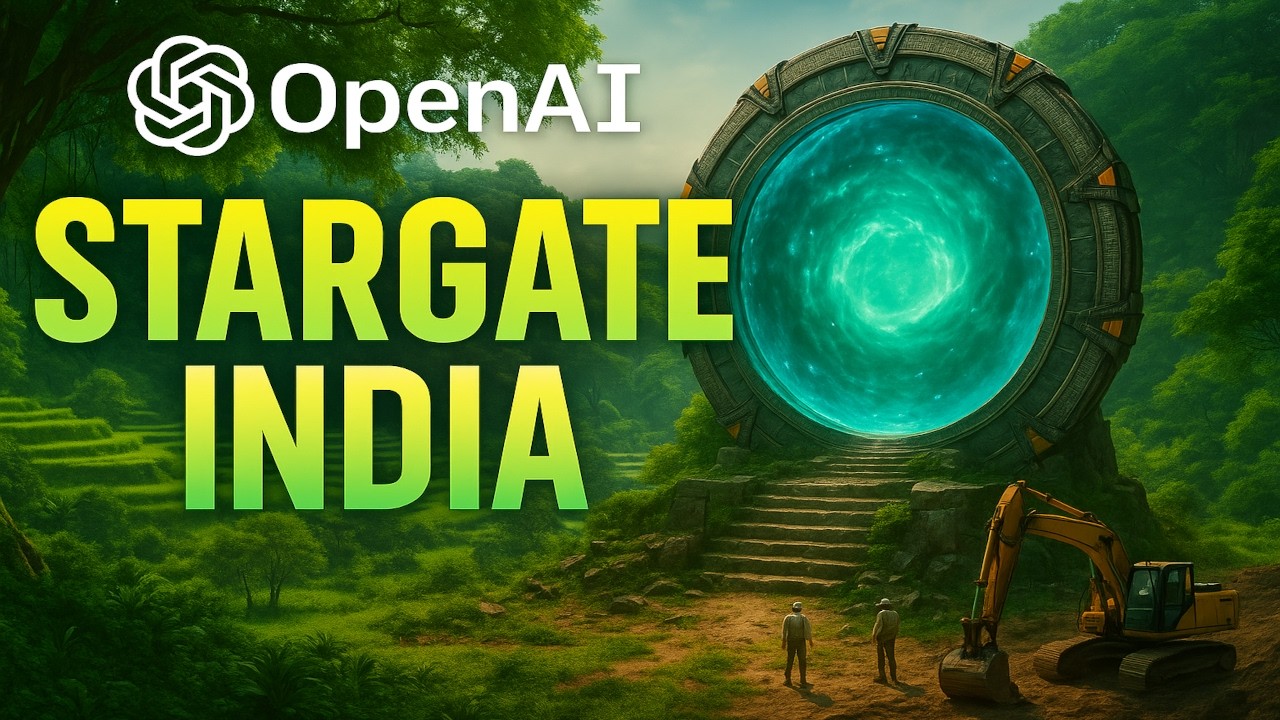The video discusses OpenAI’s strategic expansion with a new 1-gigawatt Stargate data center in India, their acquisition of Statsig for faster AI product iteration, and efforts toward responsible AI deployment, while also examining industry trends like Nvidia’s hardware dominance, geopolitical supply chain risks, and significant AI-driven workforce shifts. It further highlights advancements from Google DeepMind, debates around AGI, and the broader socio-economic impacts of AI adoption, concluding with invitations to engage in AI-focused communities and educational opportunities.
The video begins with several personal announcements from the creator, including the upcoming launch of their first course on the First Movers platform, focused on maximizing benefits from artificial intelligence, and the completion of their book, “The Great Decoupling,” which explores post-labor economics. Additionally, the creator has separated their content, dedicating this channel exclusively to artificial intelligence topics. The main discussion then shifts to OpenAI’s recent announcement of building a 1-gigawatt Stargate data center in India, complementing their multi-gigawatt data centers in the U.S. with Oracle. This move highlights the growing importance of energy, supply chains, and real estate as critical bottlenecks and competitive moats in the AI industry, emphasizing the capital-intensive nature of AI infrastructure.
OpenAI’s acquisition of Statsig is another key update, aimed at enabling faster A/B testing to refine AI product features more rapidly. This approach mirrors strategies used by tech giants like Amazon and Meta, focusing on iterative improvements rather than waiting for massive model overhauls. The company is also introducing parental controls for ChatGPT, involving 250 doctors worldwide to enhance safety and crisis intervention capabilities, reflecting a commitment to responsible AI deployment. These developments indicate OpenAI’s shift toward treating AI as a consumer product that requires continuous, data-driven refinement.
The video then covers Nvidia’s record revenues, noting that a significant portion comes from a few major buyers, raising questions about capital concentration in the AI hardware market. Geopolitical tensions, especially involving China and Taiwan, are underscored as critical factors influencing chip supply chains and AI development. The creator expresses cautious optimism about efforts to bring semiconductor manufacturing onshore in the U.S. to mitigate risks. Meanwhile, Meta’s AI talent strategy is scrutinized, highlighting a recent hiring spree followed by departures and internal reorganization, suggesting possible misalignment between leadership’s vision and researchers’ expectations.
Oracle’s role in AI is also discussed, particularly its partnership with OpenAI on Stargate and its simultaneous workforce reductions as it pivots toward AI data centers. Broader industry layoffs are examined, including Salesforce’s significant reduction of customer service roles through AI automation, signaling a major shift in white-collar employment. The creator warns of the growing labor glut and its potential to depress wages and create “labor refugees” as displaced workers compete for fewer jobs, especially impacting entry-level positions in STEM fields. This trend raises concerns about the socio-economic consequences of rapid AI adoption.
Finally, the video touches on Google DeepMind’s recent advancements, such as Robo Ballet, which demonstrates sophisticated multi-arm robotic coordination and adaptive planning, pointing toward future automation breakthroughs. Jeff Dean of DeepMind shares insights on the ambiguous nature of AGI (Artificial General Intelligence), emphasizing practical AI capabilities over abstract definitions. The creator reflects on the evolving understanding of AGI, suggesting that current AI models already exhibit many general intelligence traits despite ongoing debates. The video concludes with an invitation to join various communities and courses for those interested in further exploring AI and its implications.
